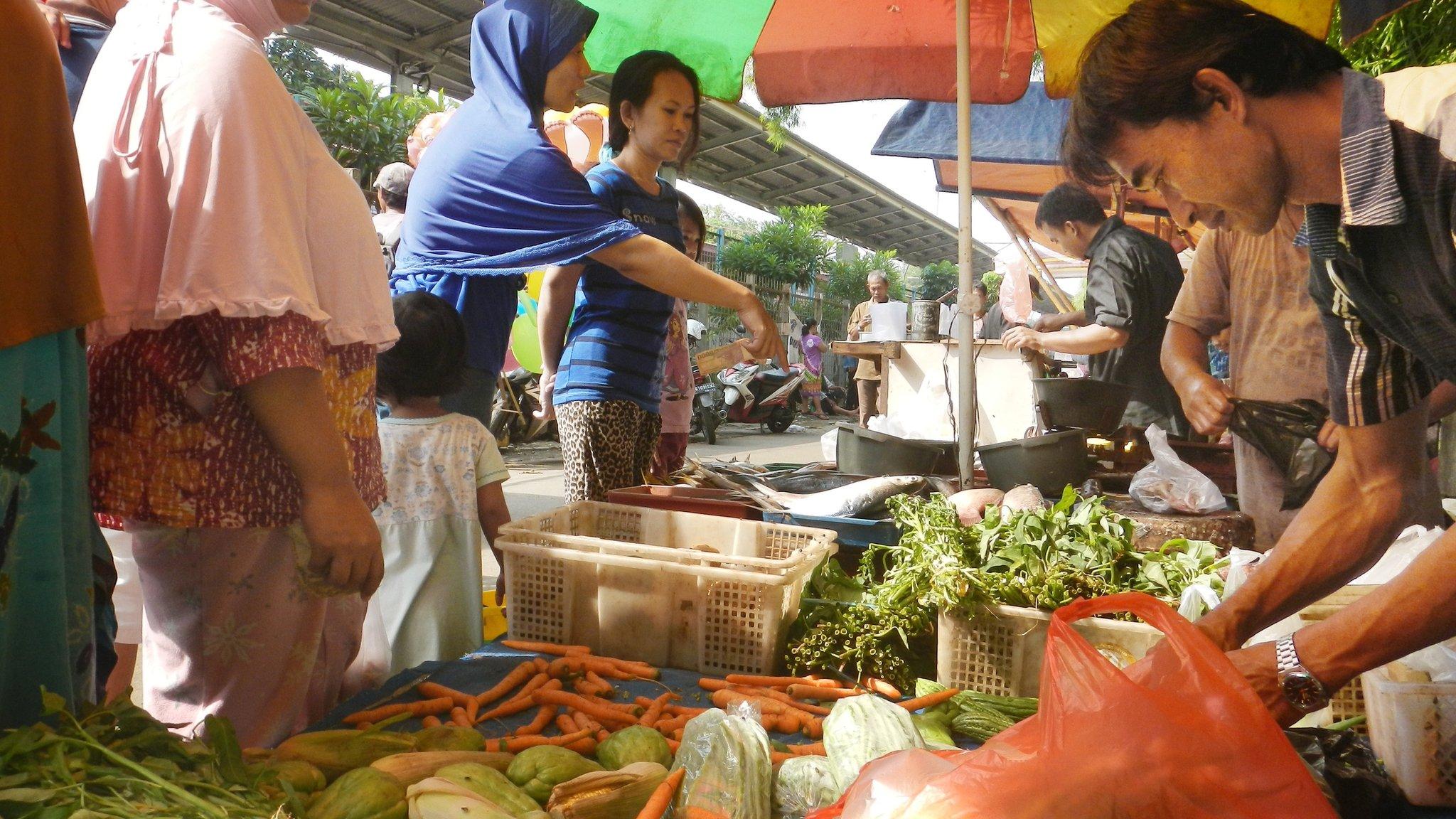Indonesia 'needs time' to tackle haze - Joko Widodo
- Published
Joko Widodo: Indonesia haze work 'will take three years'
Indonesia's President Joko Widodo has said he needs time to tackle the forest-burning which creates a haze every year over South East Asia.
In an exclusive interview with the BBC, Mr Widodo said Indonesians were also victims of the haze, but it would take three years for results to be seen from efforts to end the huge annual fires.
He also said Indonesia was open to investment, promising to cut red tape.
And he dismissed criticism he had failed to deliver on election promises.
Illegal fires
Speaking to the BBC Asia Business correspondent Karishma Vaswani in Jakarta, Mr Widodo said the haze was "not a problem that you can solve quickly".
The pollution is caused by people in Indonesia's Sumatra, Kalimantan and Riau regions illegally burning large areas of forest and peat for planting, mostly with lucrative palm oil trees.
The BBC's Jerome Wirawan joins fire fighters in South Sumatra: ''This is peat land - the air is very thick with haze''
It is repeated point of tension between Indonesia and its neighbours every year, often causing air conditions classified as highly hazardous to human health. Earlier this year it was so bad in Riau province a state of emergency was declared.
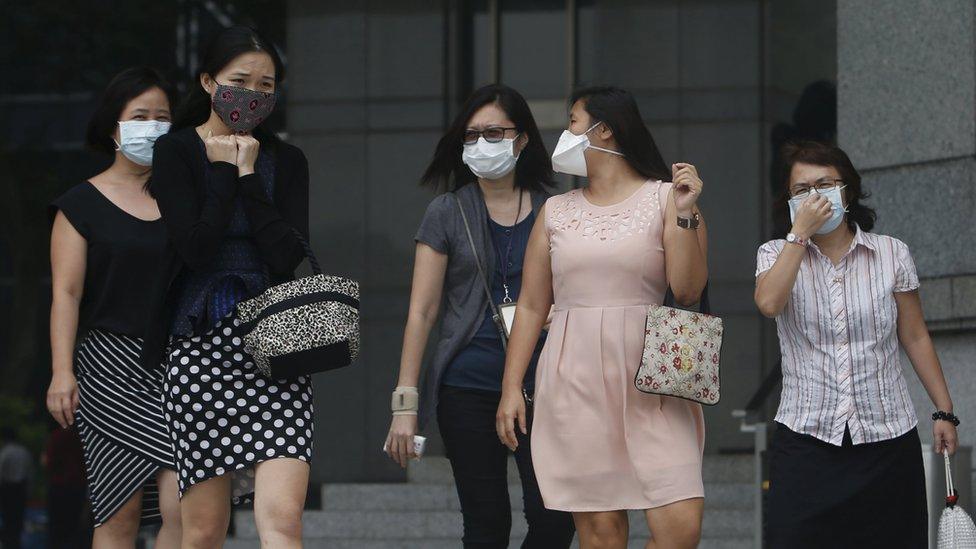
Singaporeans have grown increasingly angry about the annual deterioration of air quality
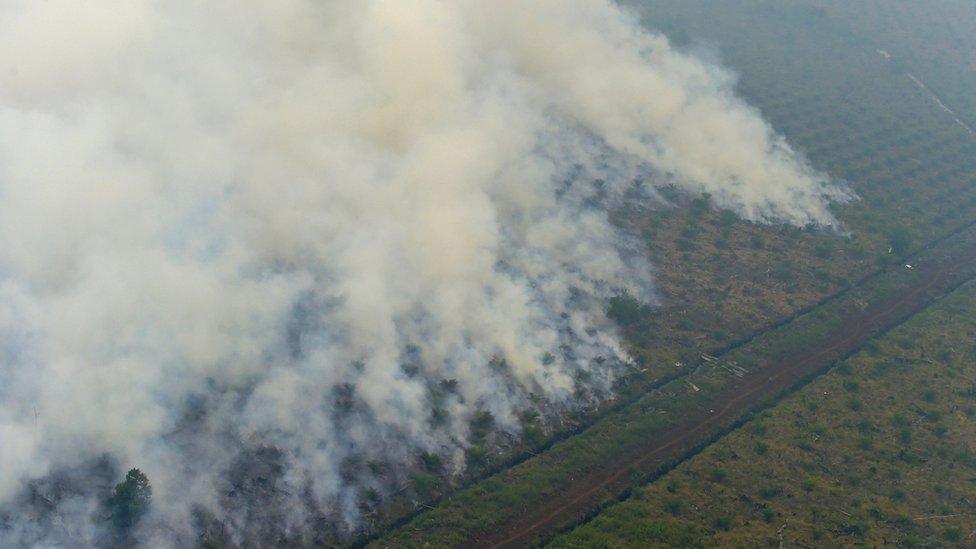
Huge areas of forest are cleared by burning in Indonesia every year, causing hazardous health conditions
Singapore and Malaysia have called on Indonesia to do more to address the problem, though Indonesia has often pointed out that some of the companies responsible for the burning are foreign-owned and that their neighbours benefit from cheap palm oil products.
Mr Widodo said Indonesia had "gone to great lengths" to tackle it already, including sending 3,700 soldiers, nearly 8,000 police officers and four water-bombing planes to put out the fires.
It was building water reserves in the forest and canals to get water to the hotspots, he said, while also making progress to enforce laws against forest-burning.
"You will see results soon and in three years we will have solved this," he said.

Analysis: Karishma Vaswani, Asia Business Correspondent
A year into his term, has Indonesia's president brought growth?
Joko Widodo swept to power a year ago, and captured the imagination of the country's youth with his man of the people image. But what a difference a year makes.
Although during the interview he appeared to put on a show of confidence about his handling of the economy - currently his administration's biggest headache - he was short on specifics and dismissed concerns that he has disappointed his supporters by saying that Indonesia is a big country and it takes time to fix the many problems it has.
That may be true but overwhelmingly the mood amongst investors and businesses I met in Jakarta was one of exasperation. When will the president stop talking and start acting, many asked me.

'Recovery on the way'
Mr Widodo - popularly known in Indonesia as Jokowi and a former governor of Jakarta - was elected in July last year promising to reinvigorate the economy and increase infrastructure spending.
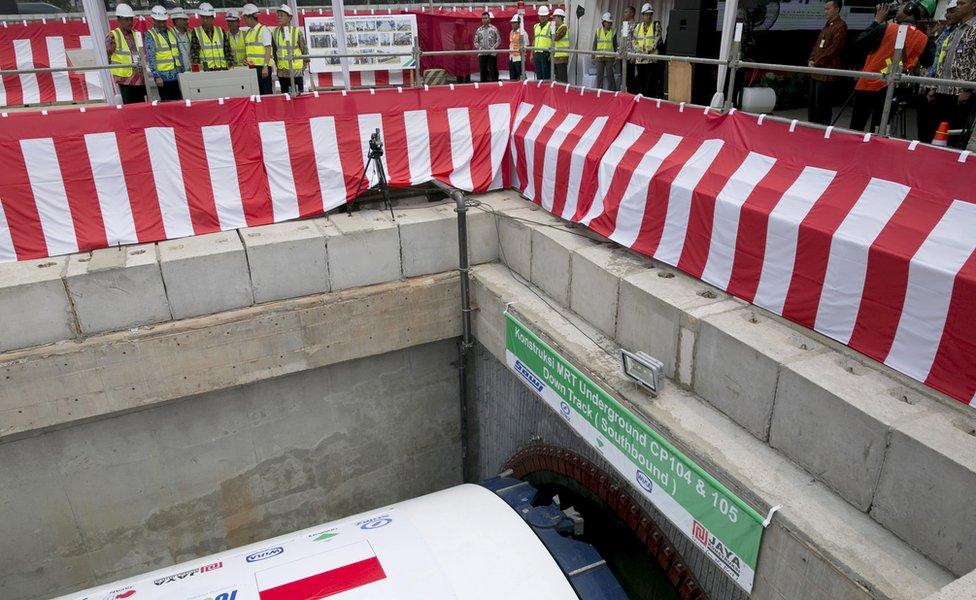
Work recently began on a much-needed metro system for the congested capital, Jakarta, a small sign of progress on infrastructure.
But after a decade of improving living standards, Indonesia is facing its slowest average growth rate in a decade and many have already grown disillusioned.
Mr Widodo said government spending was picking up, and signs of recovery would be clear by early next year.
He said he was working to remove red tape in many industries to encourage investment and trigger growth.
But any infrastructure spending had to be privately funded and transparent, he said, saying a much-vaunted foreign-backed high-speed rail network was recently cancelled because it had not met these conditions.
"This is my job and my responsibility to open the door for investment, to provide a business environment in order to build industries in Indonesia. We have to build industrialisation and infrastructure so people can work there."
Watch Karishma's full interview with Joko Widodo on Talking Business this weekend on BBC World and BBC News Channel
- Published16 September 2019
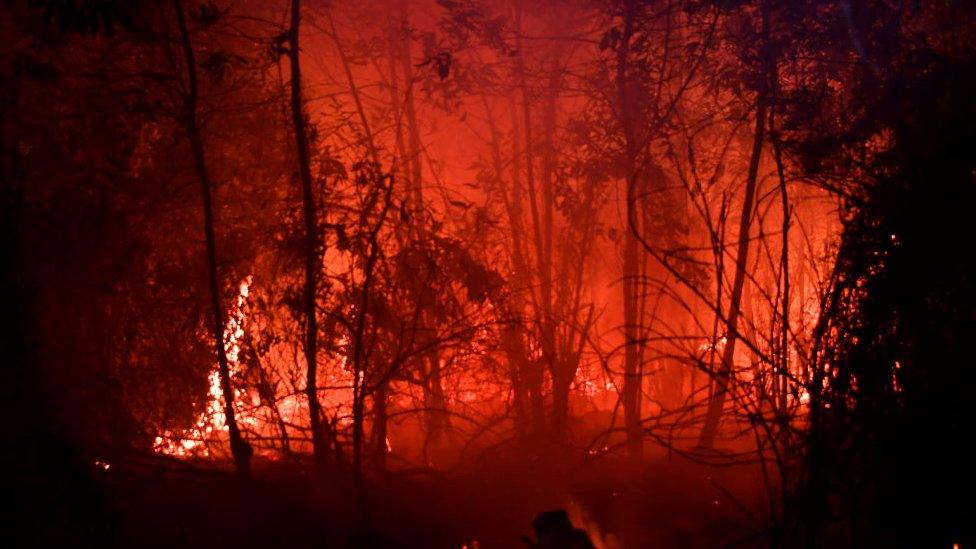
- Published25 September 2015
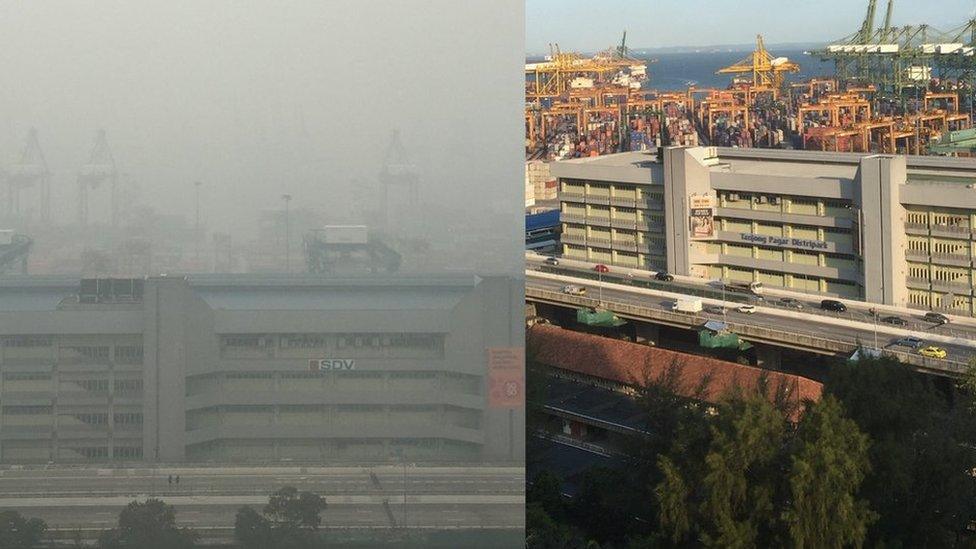
- Published13 February 2024
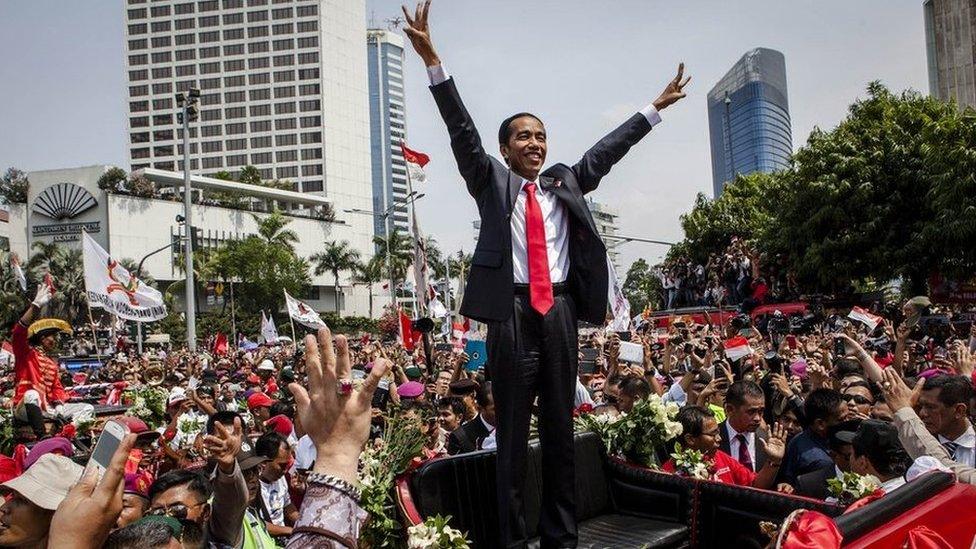
- Published5 May 2015
